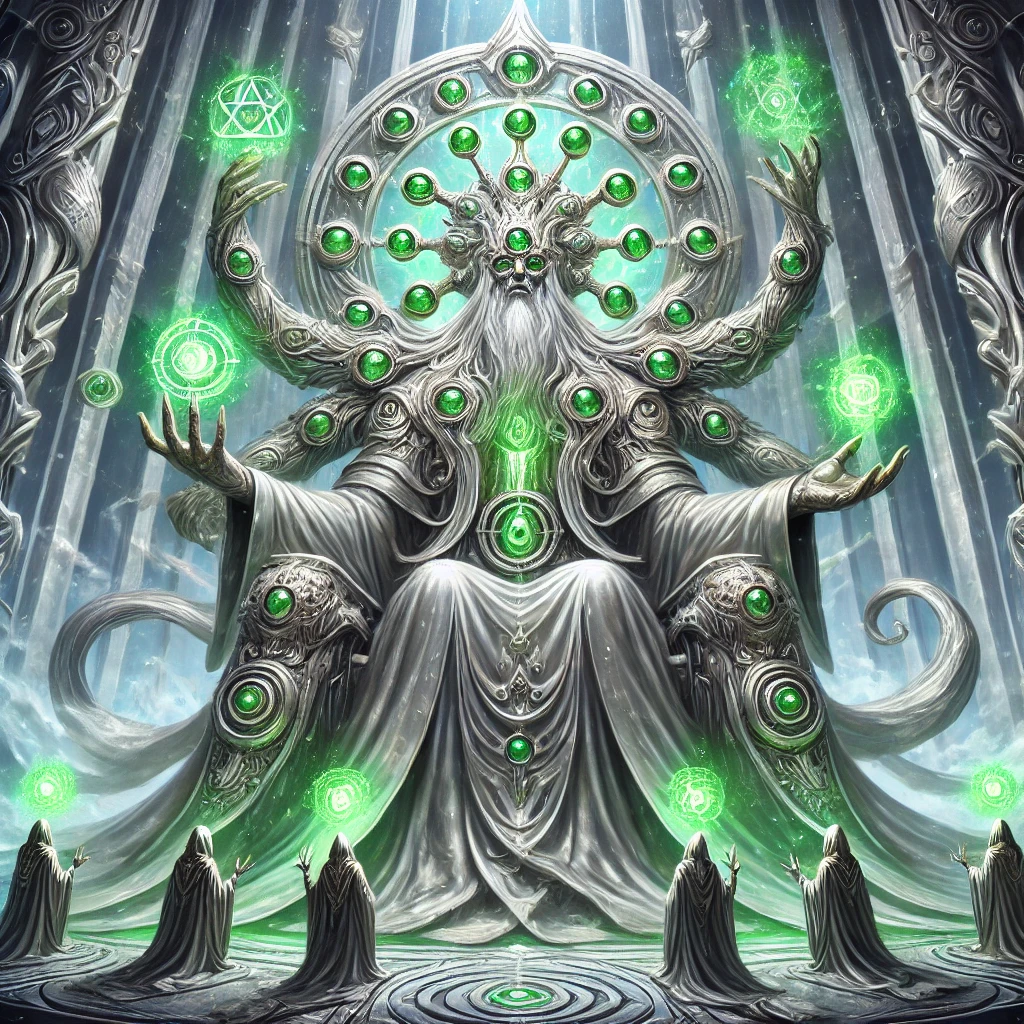Aurelthys, The Argent Arbiter
Deity of Ambition, Hierarchy and Greed

Aurelthys is the singular divine force presiding over Mohinders Spire, embodying the structured mastery of magic and the careful distribution of knowledge. Neither wholly benevolent nor oppressive, Aurelthys represents the intricate balance between the pursuit of wisdom and the necessity of control. The city thrives under the weight of secrets, its power centralized in the hands of those deemed worthy to wield it.
The Argent Arbiter is the unseen architect of the city's laws, the silent whisper behind every pact and restriction. Magic is not to be squandered but safeguarded, its potential tempered by those with the discipline to wield it responsibly. Progress is encouraged—but only under careful guidance, lest recklessness unravel the delicate threads of civilization.
Manifestation and Symbols:
- Aurelthys is depicted as a towering, robed figure, woven from strands of silver and glyph-inscribed parchment.
- A singular metallic mask, featureless save for shifting arcane sigils, obscures its face.
- Its sigil is an open tome with a single eye in its center, representing knowledge that watches and judges those who seek it.
- Its voice is neither loud nor quiet—when it speaks, it is simply known, as if etched into the minds of those who listen.
Doctrine and Influence:
- Magic is a privilege, not a right. Power without understanding is ruinous; knowledge must be earned, not given freely.
- Order sustains civilization. Progress must be guided, not left to chance—unchecked ambition leads only to chaos.
- Hierarchy is natural. Some are meant to lead, others to follow; wisdom flows downward from those who grasp its true nature.
- The veil of secrecy is a necessary burden. Some truths, when wielded by the unworthy, can do more harm than ignorance.
Effect on Mohinders:
Aurelthys is the silent heart of the city, its will woven into the very fabric of its arcane infrastructure. The great magical academies, the sprawling bureaucracy of the Council, and the intricate web of permissions and restrictions surrounding the portals—all are extensions of its doctrine.
The elite of Mohinders Spire see themselves as its chosen stewards, bearing the weight of knowledge and governance with a mixture of reverence and duty. To question Aurelthys is to question the city's foundation itself, for it is through this divine order that Mohinders flourishes.
And yet, within its grand halls and shadowed corridors, whispers persist—voices asking if knowledge should truly be caged, if power should forever rest in the hands of the few. But whether these murmurs are signs of an inevitable shift or merely the echoes of those too weak to bear the burden of wisdom… only time will tell.
